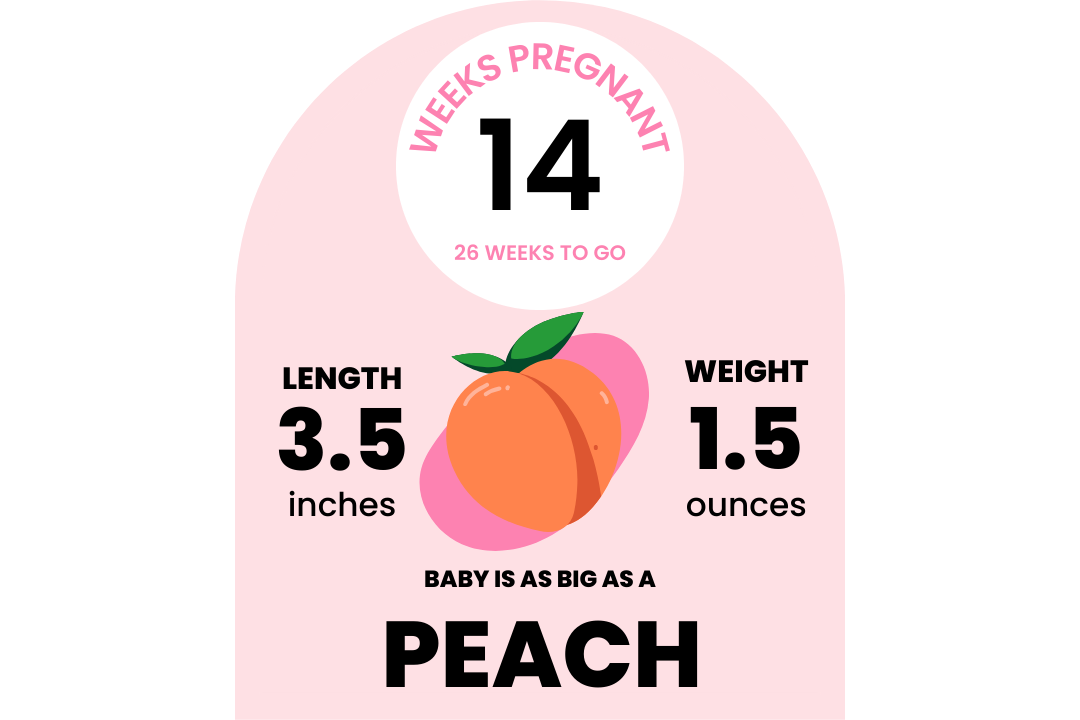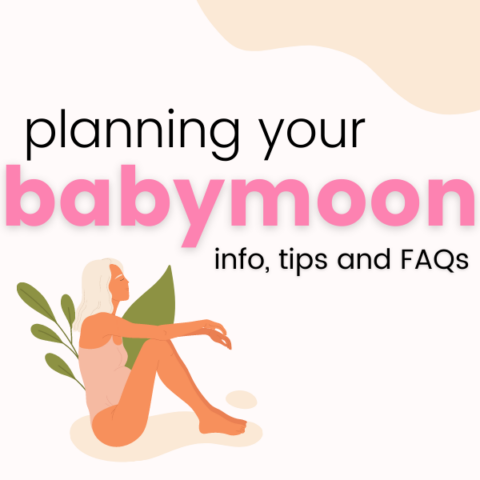
Baby’s growth and size
Baby is kicking off week 14 with a decent growth spurt! Measuring around 3.5-4 inches and weighing 1.5-2 ounces, baby is getting their growth on.
What’s new developmentally?
Lanugo (that peach fuzz hair) is continuing to grow all over baby’s body. Lanugo will protect baby’s skin and keep them warm while they are in uteruo.
Baby’s eyebrows and eye lashes are starting to grow, and their facial muscles are working well enough to allow baby to smile! Baby is working on developing their grasp reflex this week and will be testing it out – there’s a lot going on in there!
Fun facts about your week 14 baby
- Baby is developing their sense of smell and taste
- Baby can suck their fingers or thumb – you might even catch it on an ultrasound
- Baby is beginning to hear so make sure you and your partner are talking or singing to baby throughout the day
14 weeks pregnant ultrasound
By 14 weeks you should have already had your first trimester ultrasound. You may opt for an additional ultrasound done between weeks 11 and 14 to assess your baby’s risk of chromosomal abnormalities.
These chromosomal abnormalities can indicate things like Down syndrome (trisomy 21), Edwards’ syndrome (trisomy 18), Patau syndrome (trisomy 13), and a few others. This particular ultrasound, commonly referred to as the Nuchal Translucency (NT) scan, should be completed between weeks 11 and 14.
During the ultrasound, the technician will measure baby’s neck and the length of clear space in the tissue at the back of baby’s neck. Often, when more fluid is present in this space, it will be larger.
What is important to remember is that this is a screening tool, not a diagnostic test. Based on the results, your provider will recommend further follow-up testing if necessary.
14 weeks pregnant brown discharge
Usually, brown discharge during pregnancy is normal and does not indicate a problem. To be safe though, any and all vaginal bleeding during pregnancy should be promptly reported to your OB provider.
Irritation is the most common cause of brown discharge in pregnancy. Increased blood flow in pregnancy can make your cervix extra sensitive and vascular. As a result, things like sex or a pelvic exam can cause irritation and make it bleed a little bit.
Even though it’s usually benign, I still recommend notifying your OB provider of vaginal bleeding in pregnancy just to make sure there’s nothing else going on!
14 weeks pregnant baby movement
Those first fetal movements are called quickening. Quickening can feel different for everyone and might be difficult to pinpoint at first, especially if it’s your first baby.
Even though baby begins moving around 12 weeks, it might be 16 or 20 weeks before you can actually feel the movement. Some things that impact when you feel quickening include the location of your placenta, activity level of baby, and if you’ve had a baby before.
An anterior placenta can muffle baby’s movements, making it harder and taking longer to feel the movement. Mamas that have been pregnant before usually know what to look (or feel) for when it comes to those first baby movements and can usually detect quickening earlier than first time mamas.




